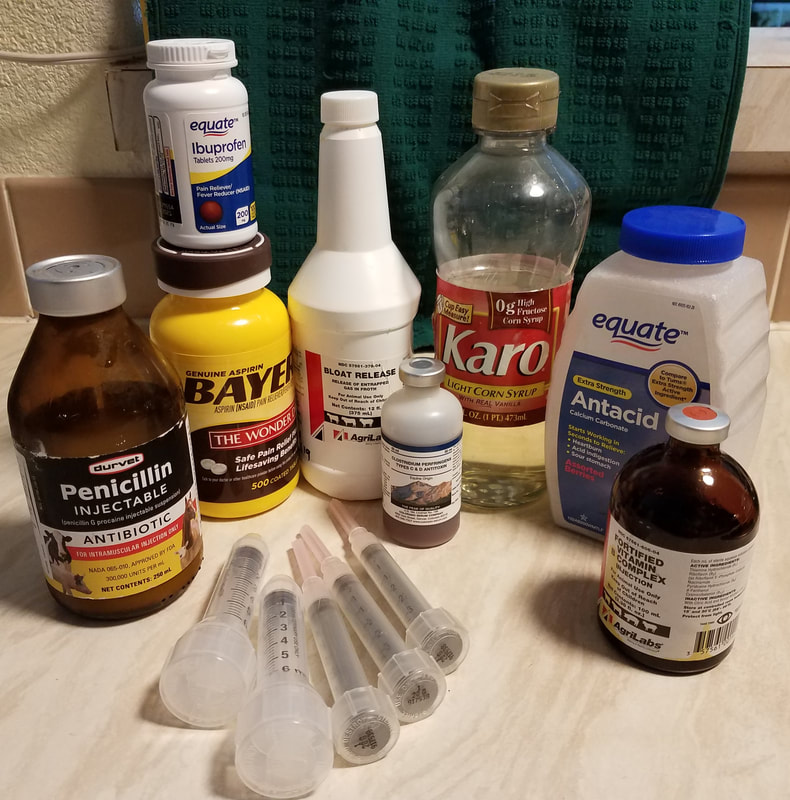|
Rhododendron/Azalea poisoning
The following information was obtained from the Abiqua Animal Clinic website Dr. Acton's Rhododendron Drench Mix with one quart water: ¼ cup molasses 1 tsp Ginger 2 Tbl Epson Salts 1 tsp Salt 1 tsp Baking soda Shake well Drench 1 pint-quart Then repeat with smaller amounts, 3-4 times a day, until signs resolve. Use care when drenching to prevent aspiration. |
The point of a well stocked veterinary medicine kit is not to use everything you have, but to have anything you need, when you need to use it.
I've learned over the years, there are a few items that are absolute MUST HAVES - when you need them, you need them RIGHT NOW. You have hours, maybe only minutes, for intervention to have any hope of working. Having these things on hand could mean a life and death difference of intervening early enough the goat has a chance of surviving, and/ or not declining further until the vet can see them for further required treatment. Maladies such as goat polio (polioencephalomalacia), listeriosis, hypoglycemic kids, bloat, grain binge/high risk event for clostridial disease, and rhododendron poisonings are just some of the situations in which immediate intervention can make a big difference in the outcome. One further note - this is a list of items I keep on hand, and strongly encourage others to include in their animal medical care kit. However, this list and any information given is not, nor is it intended to be, veterinary advice. Recommended MUST HAVES (not all are pictured): * Orally administered bloat treatment medication (active ingredient docusate sodium); i.e, Bloat Release, Thera-bloat, etc. * Injectable Vitamin B-Complex (especially for the thiamine) * Thiamine/Vitamin B-1 capsules or caplets *C&D ANTI-TOXIN (this is different from the vaccine!) *Tetanus ANTI-TOXIN (also different from the vaccine!) - off-label for goats, discuss with your veterinarian. *Anti-inflammatory: all are off-label, discuss with your vet. Aspirin or ibuprofen are OTC options that might be used. Meloxicam (oral) or Banamine (injectable) are more effective, and only available via veterinary prescription. *Penicillin G Procaine: this is available over the counter in most US states and widely used in goats; that said, its use is still considered off-label for goats. The typical dosage for goats is also different (higher) than what is listed on the label. * Tums or other calcium carbonate oral antacid tablet *at least five each of Sterile 3 ml, and 6 or 12 ml syringes, with 18-22 gauge, 3/4 - 1" needles (either attached and sold as one sterile unit, or sterile needles purchased separately.) * Milk of magnesia * Vegetable oil * Activated charcoal |
